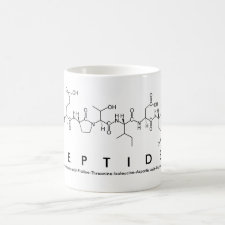
Authors: Wang XJ, Xu ZL, Yang ZG, Bing NC
Article Title: Molecular recognition in aqueous media with molecular imprinting technique.
Publication date: 2007
Journal: Progress In Chemistry
Volume: 19
Issue: (5)
Page numbers: 805-812.
Alternative URL: http://www.progchem.ac.cn/EN/abstract/abstract9416.shtml
Abstract: Among the variety of biomimetic recognition systems based on supramolecular approaches, molecularly imprinted polymers (MIPs) have proved potential as synthetic receptors and received more and more attention. Conventional molecular imprinting technology allows the synthesis in organic solvents of molecularly imprinted polymers selective toward relatively low molecular weight compounds. However, synthesis in aqueous media of chemically and mechanically stable MIPs that can recognize biomolecules still is a great challenge. From small molecules to biomacromolecules, from organic phase to aqueous media, the application field expands with the development of molecular imprinting technique. The recent progress in preparation and recognition of molecularly imprinted polymers in aqueous phase are overviewed and discussed. The design strategy and preparation methods of aqueous MIPs are investigated. The emphasis is put on the applications of aqueous recognition in the fields of solid phase extraction, Chromatographic stationary phases, drug delivery and controlled release, separation of active ingredients from herbs and recognition of biomolecules. The methods to improve the selectivities of MIPs in aqueous recognition are presented, and the challenges, as well as the suggestions to the development of molecular imprinting technique are outlined
Template and target information: Review - MIPs
Author keywords: molecular imprinting, molecularly imprinted membrane, Molecularly imprinted polymers, Recognition in aqueous media



Join the Society for Molecular Imprinting

New items RSS feed
Sign-up for e-mail updates:
Choose between receiving an occasional newsletter or more frequent e-mail alerts.
Click here to go to the sign-up page.
Is your name elemental or peptidic? Enter your name and find out by clicking either of the buttons below!
Other products you may like:
 MIPdatabase
MIPdatabase









